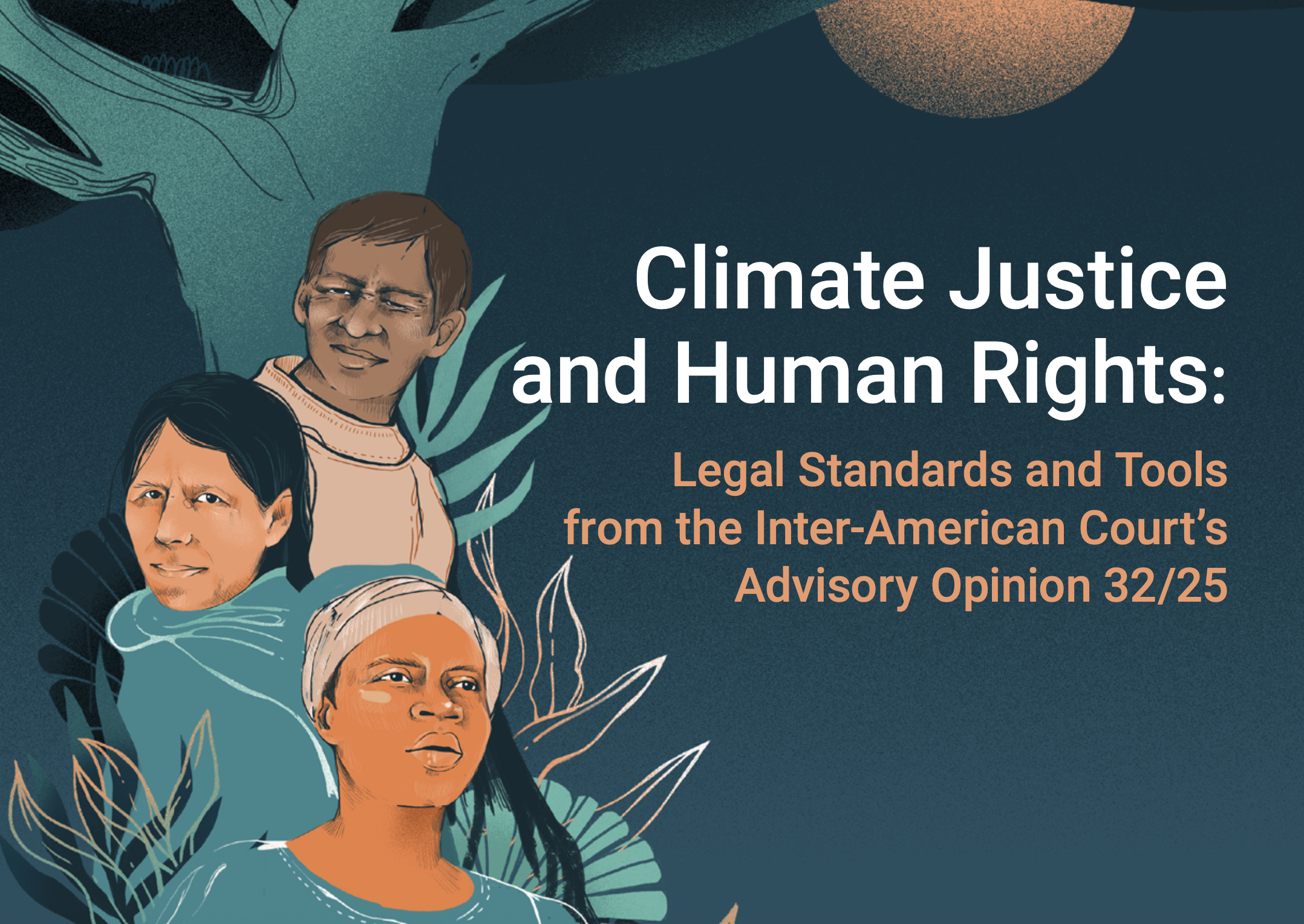New Publication: Climate Justice and Human Rights: Legal Standards and Tools from the Inter-American Court’s Advisory Opinion 32/25

Washington, D.C., 3 November 2025 — Irreversible climate destruction is a peremptory violation of international law. This unprecedented legal determination, alongside the explicit recognition of the right to a healthy climate and Nature as a subject of rights, is among the conclusions highlighted in the new publication, Climate Justice and Human Rights: Legal Standards and Tools from the Inter-American Court’s Advisory Opinion 32/25.
The publication, developed in collaboration with over 20 organizations, including CIEL and IGSD, examines the Inter-American Court of Human Rights’ groundbreaking Advisory Opinion of May 29, 2025, which confirmed that both States and non-State actors have binding human rights obligations to address the climate emergency. Through the Advisory Opinion, the Court established legal duties for acting urgently to keep within the 1.5°C guardrail, grounded in human rights. Through 14 thematic briefs, the report translates the Court’s Advisory Opinion into a practical roadmap for climate litigation, policy reform, and accountability.
Key recommendations from the publication for utilizing the Advisory Opinion include:
Litigation and Judicial Practice
- Invoke the Opinion as binding interpretive authority to treat climate inaction as a human rights violation, challenge inadequate climate plans and NDCs, and secure remedies and recognition for youth, Indigenous Peoples, and future generations.
- Seek procedural and integral reparation for both climate harm and violations of procedural rights (like access to information, participation, and justice).
Legislative and Institutional Reform
- Integrate human rights into climate laws, protect procedural rights, improve access to justice, and establish specialized climate courts and oversight bodies.
- Incorporate Indigenous and traditional knowledge into climate decision-making, treating these as authoritative legal and scientific inputs.
International and Regional Cooperation
- Treat cooperation as a binding legal obligation, grounded in good faith and proportionality to each State’s capabilities and historical emissions.
- Integrate cooperation duties into domestic law, allowing civil society and courts to hold governments accountable for failures to cooperate internationally.
Civil Society and Advocacy Strategies
- Advocate for just transition policies, like implementing Escazú, protecting environmental defenders, and scaling community and youth-led climate governance.
- Push for enforcement and accountability through establishing ombudspersons, national human rights institutions, and other programs for climate-affected groups.
The Inter-American Court’s Advisory Opinion marks a historic milestone and is a transformative tool for binding climate governance. This new publication offers practical tools for courts, advocates, and policymakers to implement the Advisory Opinion’s standards and advance climate justice across the Americas and beyond.
Read the full publication here in English or Spanish.
Contact: info@igsd.org
